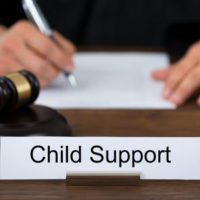Paying Child Support After You’ve Been Fired

It is still worryingly common in this day and age for a worker to lose their job with very little warning. While obviously, losing a job is stressful on multiple levels, it can also cause issues for your family, especially if divorce is already in the proverbial equation. Losing a job, especially through no fault of your own, can create confusion when attempting to apportion child support.
Florida Law
Generally, when a couple is divorcing, the court will impute a certain amount of income to both parents. Any potential source of income, such as rental properties, stocks, inheritances and the like will be taken into account, and once taxes and other obligations are factored out, that figure will be used to calculate how much child support the obligor can afford to pay. If circumstances change, one or both parents may bring an action to have the amount adjusted up or down.
Florida’s law lists a set of guidelines for the amount to be paid per child, but both parents’ income and the children’s healthcare needs are also taken into account in determining an amount. The guidelines are just that – in other words, it is possible for a court to establish a child support burden that may be higher or lower than the guidelines, as long as rationale for doing so is set in the record. Judges have some discretion in terms of child support decisions, simply because the guidelines cannot cover every eventuality.
The Question of Imputed Income
The reason that losing a job can matter during a divorce is because of the question of imputed income. If you lose a job, no income can be imputed to you, and as such, you may not be assessed a very high support burden to pay. This can cause problems in terms of asset distribution, because the obligee may be entitled to more assets to offset a lack of support, but by nature, most periods of unemployment are temporary. Thus, a court may try to wait out the unemployment period, but then temporary support may become an issue, and so on.
That said, a court may absolutely not impute income to someone who loses their job involuntarily, by Florida law. A recent case in the Second District Court of Appeal, Back v. Back (2016), dealt with child support issues when the father, the primary breadwinner, lost his job via involuntary termination directly before divorce proceedings. As such, the only income that ought to have been imputed to him was from a part-time second job, but the court imputed the income to him that he had at his previous job. The Court of Appeal held that this is inconsistent with both statutory law and public policy – one may not be held responsible for paying out income one does not have, and just because someone has the possibility to earn that much again does not necessarily mean that they will. Nevertheless, the unemployed spouse must make every effort to get a new job for which he is suited, or face the possibility of the court imputing income that was not actually earned.
Consult A Child Support Attorney
Child support can be a fraught and complex issue that can take a lot of time to resolve. Enlisting a knowledgeable attorney can make a huge difference, especially if you are going through both a divorce and a job loss at the same time. The Hollywood child support attorneys at the firm of Steven A. Mason, P.A. has years of experience with this area of law, and is happy to meet with you to help decide what to do in your case. Contact the Fort Lauderdale and Hollywood Law Offices of Steven A. Mason, P.A. for legal advice at 954-963-5900 or leave a message online.
Resource:
2dca.org/opinions/Opinion_Pages/Opinion_Pages_2016/July/July%2022,%202016/2D14-3076.pdf
